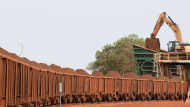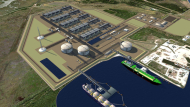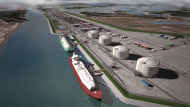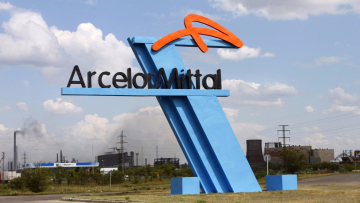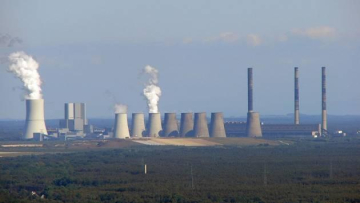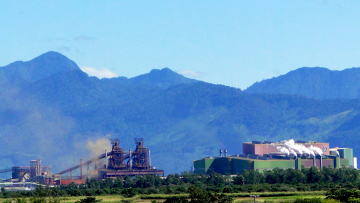‘Stop treating us as your sacrifice zone’ Community leaders demand at ING’s annual shareholder meeting
Julia Hovenier, Banks and Steel Campaigner, BankTrack
Henrieke Butijn, Climate Campaigner, BankTrack
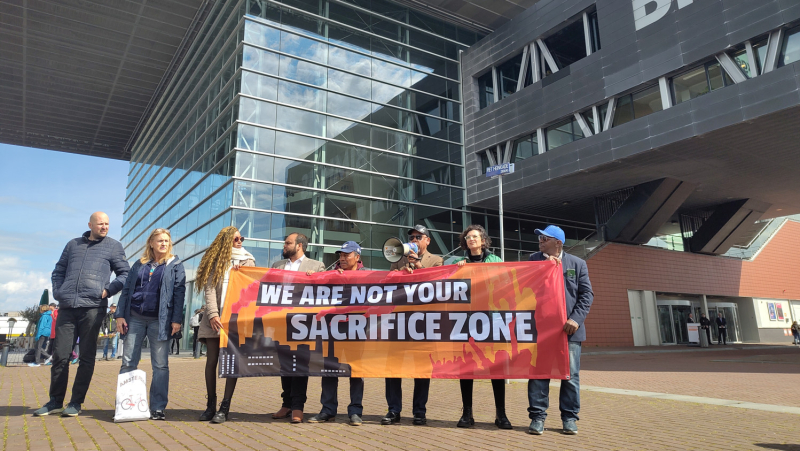
Julia Hovenier, Banks and Steel Campaigner, BankTrack
Henrieke Butijn, Climate Campaigner, BankTrack
This Monday, April 22nd, representatives of frontline communities from Mexico, Brazil, Liberia, the United States and the Czech Republic, facilitated by BankTrack and ING Fossielvrij, demanded at the AGM of ING that the bank stop treating their territories as a sacrifice zone.
Before the AGM started, representatives from affected communities held speeches outside the venue, telling their stories to Dutch activists, and chanting “We are not your sacrifice zone” and “We believe that we will win” together.
While Milieudefensie (Friends of the Earth Netherlands) mobilised 120 volunteers to attend the AGM, Extinction Rebellion Netherlands blockaded the road entrance to the AGM venue shortly after the opening of the doors, preventing “regular” (non-activist) shareholders from attending the meeting in person.
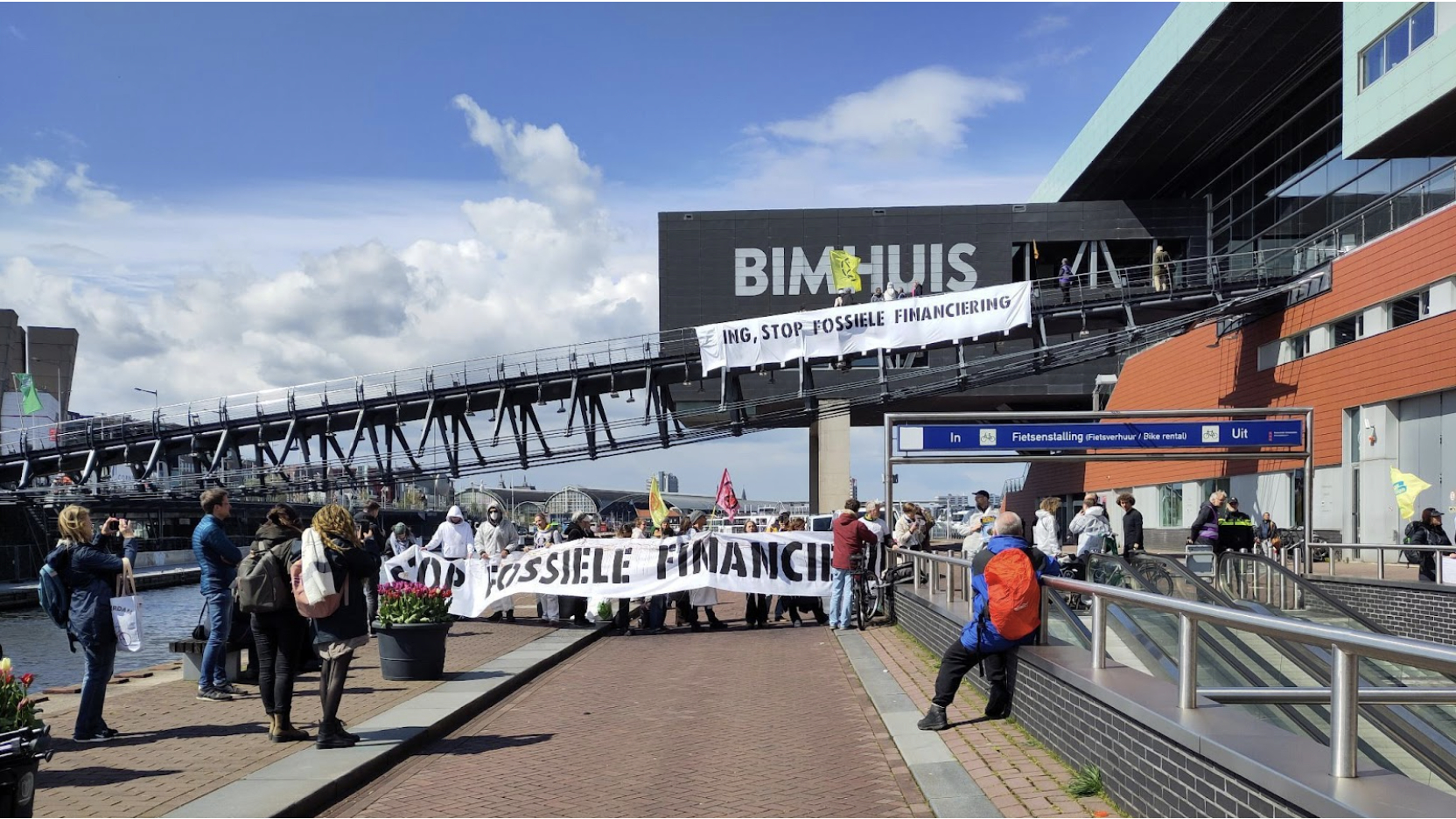
As a result, nearly only climate activists were present in the in-person AGM, and almost all the questions asked were about community impacts, human rights violations, biodiversity impacts and the climate crisis. In a telling, although isolated, moment, the chairman of the meeting - Karl Guha - was booed for stating “we can do without the narrative” in response to a personal testimony from a human rights defender from Mexico.
ING under fire for fossil steel financing, CEO calls for an EU-wide phase out of coke ovens
Frontline communities challenged finance for specific fossil steel clients of ING, like ArcelorMittal and Ternium.
Eduardo Mosqueda of Tsikini Mexico, representing the family of a murdered Indigenous anti-mining activist, asked if ING would open an audit into its environmental and social credit facility with steel and mining giant ArcelorMittal.
Ana Luisa Queiroz, of PACS Brazil, asked if ING would publicly commit to excluding future finance for the steel company Ternium, and if ING would provide remediation for communities harmed by Ternium’s operations in Rio de Janeiro.
John N. Brownell, co-founder of Green Advocates Liberia, asked if ING would commit to not refinance its existing credit facilities with ArcelorMittal, unless the company provided compensation for communities impacted by its mining operations in Liberia.
In an evasive response to all three questions, ING stated that it complies fully with international human rights law through its ESR policies.
Following a recent report by Reclaim Finance revealing ING to be the third-largest financier of coal-based steel in Europe, Julia Hovenier, Banks and Steel campaigner from BankTrack asked ING if they would strengthen their new steel policy and exclude finance for CCS, and steel companies investing in coal-based expansion.
In response, ING’s CEO, Steven van Rijkswijk deflected the bank’s responsibility by responding that the EU must adopt a sunset date for coking coal ovens in Europe, and called on activists to advocate for this at the EU level.
“For this I need your help. We need policies, and we’ve made that clear to governments. I’ve also talked to the EU Commissioner in Brussels about this. We need to set standards for the phase out of coking coal ovens at the same time.” said Steven van Rijswijk, CEO of ING.
Criticism for US LNG
John Beard, from the Port Arthur Community Action Network (PACAN), challenged ING on the bank’s financing for LNG terminals in the US Gulf Coast, including one in his own town of Port Arthur, Texas. ING has directly financed seven LNG terminals in Texas and Louisiana.
John explained that LNG terminals add to air and water pollution, causing severe health impacts like increased rates of cancer, and heart, lung and kidney diseases. Citing the disproportionate impact on people of colour and low income communities, he called out the bank’s environmentally racist lending.
John also invited the board of ING and other staff to visit the communities in Louisiana and Texas affected by the LNG terminals to see the ‘sacrifice zones’ first hand.
In an inadequate response, the CEO referred to ING’s ESR framework and the bank’s due diligence process, and did not commit to visiting the LNG sites. Instead, he urged John to meet with the bank here in the Netherlands.
John again took to the microphone to point out that there is already an overcapacity of gas exports to Europe, and ING’s finance for new terminals is not aligned with its net-zero commitments as it incentivises new fracking projects. John ended with: “You can’t decarbonize by recarbonising.”
Gas in Europe: EPH
Radek Kubala, from Czech organisation Re-Set, asked whether ING would exclude EPH as a client and to close the gaps in their coal policy. Radek represented the StopEPH coalition - a coalition of communities impacted by EPH, a Czech company that revitalised several coal assets divested by other utilities.
ING responded that they have already excluded project financing for coal power, completely evading Radek’s point on the need to adopt corporate-level exclusions. On whether ING would exclude EPH as a client, the CEO said: “We do not necessarily exclude clients because they still finance (do) things we do not finance any more”, demonstrating the loophole in their policy.
Following this year's AGM, BankTrack will continue to call on ING to act urgently and decisively on their human rights, nature, and climate impacts by facilitating engagement between the bank and frontline communities.

